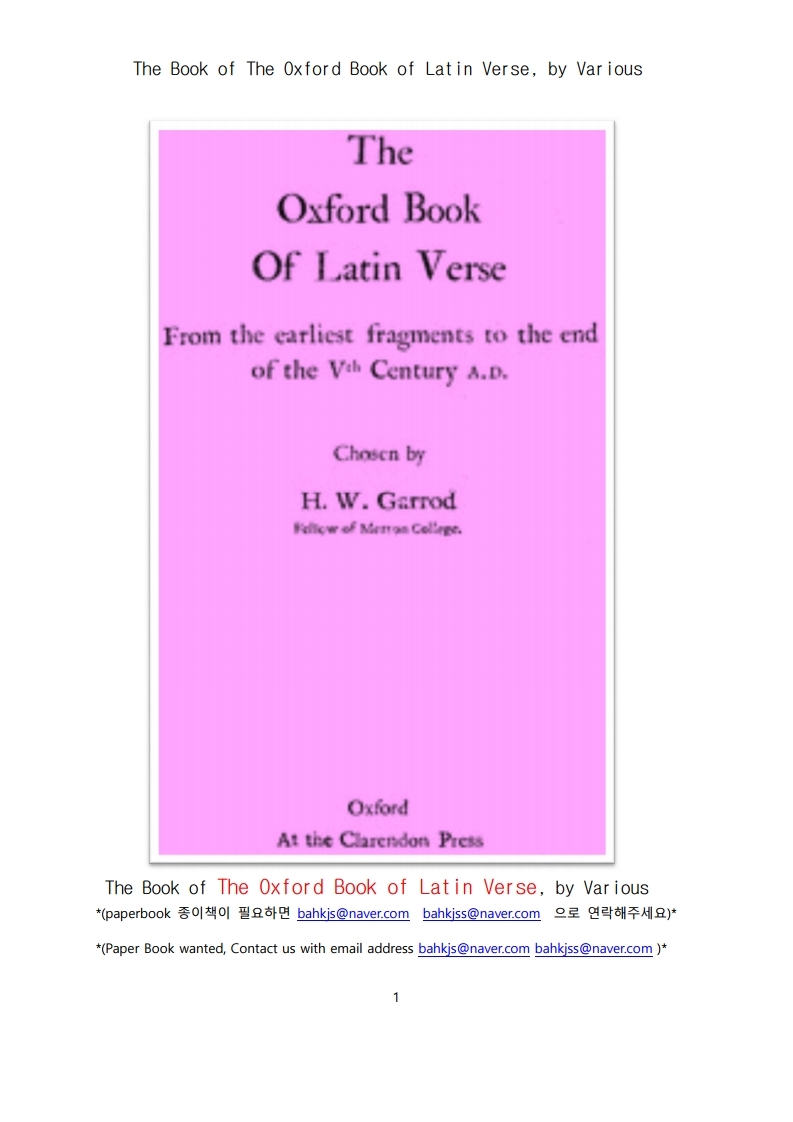초기 로마제국의 라틴어 시 구절.The Book of The Oxford Book of Latin Verse, by Various
다수.
INTRODUCTION
I
Latin poetry begins where almost all poetry begins―in the rude ceremonial of a
primitive people placating an unknown and dreaded spiritual world. The earliest
fragments are priestly incantations. In one of these fragments the Salii placate
Leucesius, the god of lightning. In another the Arval Brethren placate Mars or
Marmar, the god of pestilence and blight (lues rues). The gods are most dreaded
at the seasons most important to a primitive people, seed- time, for example, and
harvest. The Salii celebrated Mars at seed- time―in the month which bears his
name, mensis Martius. The name of the Arval Brethren betrays their relation to
the gods who watch the sown fields. The aim of this primitive priestly poetry is
to get a particular deity into the power of the worshipper. To do this it is necessary
to know his name and to use it. In the Arval hymn the name of the god is
reiterated―it is a spell. Even so Jacob wished to know―and to use―the name
of the god with whom he wrestled. These priestly litanies are accompanied by
wild dances―the Salii are, etymologically, 'the Dancing men'―and by the
clashing of shields. They are cast in a metre not unsuited to the dance by which
they are accompanied. This is the famous Saturnian metre, which remained the
metre of all Latin poetry until the coming of the Greeks. Each verse falls into two
halves corresponding to the forward swing x and the recoil of the dance. Each
half- verse exhibits three rhythmical beats answering to the beat of a three- step
dance. The verse is in the main accentual. But the accent is hieratic. The hieratic
accent is discovered chiefly in the first half of the verse: where the natural accent
of a disyllabic word is neglected and the stress falls constantly on the final
syllable.[ 2] This hieratic accent in primitive Latin poetry is important, since it was
their familiar use of it which made it easy for the Romans to adapt the metres of
Greece.





